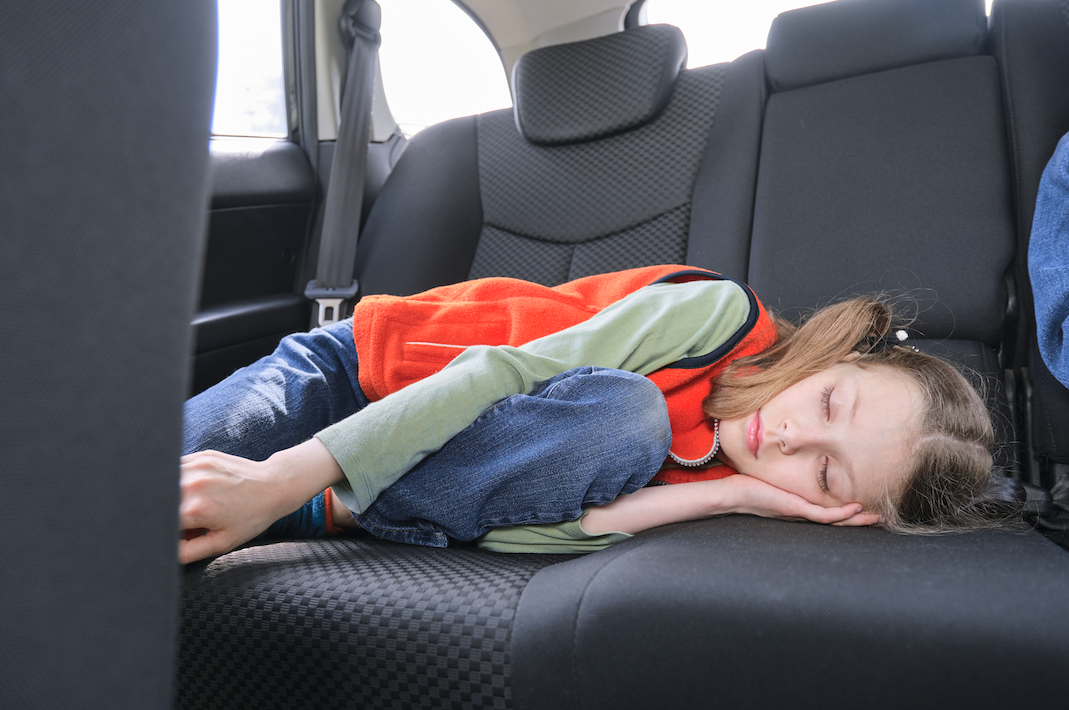Traveling can be an exciting and enriching experience, but it often comes with its challenges, particularly when it comes to getting a good night’s sleep. Whether you’re dealing with jet lag, sleeping in unfamiliar environments, or struggling with noise disruptions, prioritizing quality sleep during your travels is essential for making the most of your journey. To help me cover this topic, I’ve interviews my friend Chelsey Borson, whose the founder of Luna Leaps, a baby sleep consultant company based in Los Angeles.
In this blog post, we’ll explore various sleep aids and strategies that can help you rest peacefully while on the road.
Understanding the Impact of Travel on Sleep
Jet Lag and Its Effects on Sleep Patterns
Jet lag is a common issue faced by travelers crossing multiple time zones. The sudden disruption in our body’s internal clock can wreak havoc on our sleep patterns, leading to insomnia or excessive sleepiness during the day. To combat jet lag, try gradually adjusting your sleep schedule before your trip and consider using light exposure or melatonin supplements as aids.
Disruptions in Circadian Rhythm
Our bodies have a natural circadian rhythm, which regulates sleep-wake cycles based on light exposure. When we travel to different time zones, this rhythm can be thrown off balance. Understanding circadian rhythm disruptions can help you plan your travel schedule better to minimize sleep disturbances.
Environmental Factors that Affect Sleep in New Places
Staying in new and unfamiliar environments can make falling asleep more challenging. We’ll explore various ways to create a sleep-conducive environment, such as using blackout curtains, white noise machines, and other essential items for your travel kit.
Planning Ahead for Better Sleep
Choosing the Right Travel Schedule
When possible, opt for flight times and itineraries that align with your natural sleep preferences. Avoiding overnight flights or planning layovers with enough time to rest can significantly impact your travel experience.
Preparing a Comfortable Travel Kit
Having the right sleep aids in your travel kit can make a world of difference. We’ll discuss the importance of neck pillows, eye masks, earplugs, travel blankets, and how incorporating essential oils and aromatherapy can create a soothing sleep environment.
Selecting Appropriate Accommodations
When booking hotels or hostels, consider factors that can influence your sleep, such as proximity to noisy areas or street traffic. For travelers on buses, trains, or long-haul flights, we’ll provide tips on finding the most comfortable spots to rest.
Creating a Sleep-Conducive Environment
Optimizing Sleep Conditions in Hotels
Discover how you can optimize the sleep conditions in your hotel room, from setting the right room temperature and ventilation to using blackout curtains to keep the room dark and serene.
Strategies for Sleeping in Noisy or Crowded Environments
Noise disruptions are common during travel, especially in crowded areas or public transportation. Learn how to use white noise or nature sounds to mask disturbances and identify quiet spots to catch some z’s.
Managing Jet Lag and Sleep Disruptions
Pre-Trip Strategies to Reduce Jet Lag
Before your trip, consider adjusting your sleep schedule gradually to adapt to the upcoming time zone changes. Additionally, we’ll explore how light exposure and melatonin supplements can assist in combating jet lag.
Coping with Jet Lag During the Trip
If jet lag strikes during your journey, we’ll provide tips on effective nap strategies and how adjusting meal times can aid in sleep recovery.
Maintaining Healthy Sleep Habits on the Road
Staying Consistent with Sleep Schedule
While it might be tempting to stay up late exploring new destinations, sticking to a regular sleep schedule is crucial for ensuring adequate rest. Aim to go to bed and wake up at the same time each day, even during your travels, to maintain a healthy sleep routine.
Avoiding Sleep Disruptors like Caffeine and Alcohol
Keep in mind that caffeine and alcohol can interfere with your sleep quality. Limit their consumption, especially close to bedtime, to avoid sleep disruptions.
Incorporating Relaxation Techniques Before Bedtime
Relaxation techniques like deep breathing, meditation, or gentle stretches can help you unwind and prepare your mind and body for a restful night’s sleep. Consider incorporating these practices into your bedtime routine during your travels.
Technology and Sleep Apps for Travelers
Sleep Tracking Apps and Wearables
Technology can be a useful tool for monitoring your sleep patterns and understanding how travel impacts your rest. Explore various sleep tracking apps or wearables that can provide insights into your sleep quality.
Guided Meditation and Sleep-Inducing Apps
Discover sleep-inducing apps that offer guided meditation, calming sounds, or white noise to help you drift off to sleep more easily, even in unfamiliar environments.
Digital Resources for Sleep Tips and Advice
Utilize digital resources like online articles or podcasts that offer valuable sleep tips and advice for travelers. Learning from others’ experiences can provide helpful insights and solutions to common sleep issues.
Adjusting to New Time Zones
Tips for Short Trips and Frequent Time Zone Changes
For travelers embarking on short trips or frequently crossing time zones, we’ll discuss strategies to quickly adjust to new time zones, making the most of your limited time without feeling excessively fatigued.
Long-Term Travel Strategies for Sleep Adjustments
If your travel plans involve an extended stay in a different time zone, we’ll provide tips on how to gradually adapt to the new schedule and make the most of your time abroad without sacrificing rest.
Handling Sleep Disturbances and Safety Concerns
Dealing with Nightmares and Strange Sleep Environments
Sleeping in new and unfamiliar places can sometimes lead to vivid dreams or nightmares. Learn how to cope with these disturbances and strategies to make yourself feel more at ease in unfamiliar surroundings.
Ensuring Personal Safety While Sleeping in Unfamiliar Places
Prioritize your safety when sleeping on the road. We’ll share important safety tips to consider when staying in different accommodations or napping in public places.
Conclusion
Incorporating sleep aids and strategies into your travel routine can significantly enhance your overall travel experience. By understanding the impact of travel on sleep, planning ahead, and creating a sleep-conducive environment, …




